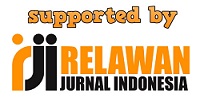HOTS Measured by Cognitive Learning Outcomes (CLO) Inventory Based Education for Sustainable Development as a Media for Students Skills Analysis
DOI:
https://doi.org/10.25273/jpfk.v10i1.19705Keywords:
HOTS, Cognitive Learning Outcomes, Sustainable DevelopmentAbstract
Downloads
References
Abidinsyah, A., Ramdiah, S., & Royani, M. (2019). The implementation of local wisdom-based learning and HOTS based assessment: Teacher survey in Banjarmasin. JPBI (Jurnal Pendidikan Biologi Indonesia), 5(3), 407–414. http://dx.doi.org/10.22219/jpbi.v5i3.9910
Bednarz, T. F. (2011). Developing Critical Thinking Skills: Pinpoint Leadership Skill Development Training Series. Majorium Business Press.
Bloom, B., Englehart, M., Furst, E., Hill, W., & Krathwohl, D. (1956). Taxonomy of educational objectives: The classification of educational goals. Handbook 1: Cognitive Domain. Longmans, Green.
Cottrell, S. (2011). Critical Thinking Skills: Developing Effective Analysis and Argument (2nd edition). Palgrave Macmillan.
Cottrell, S. (2013). The Study Skills Handbook (4th edition). Palgrave Macmillan.
Findler, F., Schönherr, N., Lozano, R., Reider, D., & Martinuzzi, A. (2019). The impacts of higher education institutions on sustainable development: A review and conceptualization. International Journal of Sustainability in Higher Education, 20(1), 23–38. https://doi.org/10.1108/IJSHE-07- 2017-0114
Gill, A. R., Viswanathan, K. K., & Hassan, S. (2018). The Environmental Kuznets Curve (EKC) and the environmental problem of the day. Renewable and Sustainable Energy Reviews, 81, 1636–1642. https://doi.org/10.1016/j.rser.2017.05.247
Hairun, Y. (2020). Evaluasi dan penilaian dalam pembelajaran. Deepublish. https://penerbitbukudeepublish. com/shop/buku-evaluasi-dan-penilaian/
Harangozo, G., Csutora, M., & Kocsis, T. (2018). How big is big enough? Toward a sustainable future by examining alternatives to the conventional economic growth paradigm. Sustainable Development, 26(2), 172–181. https://doi.org/10.1002/sd.1728
Istiyono, E. (2018). IT-based HOTS assessment on physics st learning as the 21 century demand at senior high schools: Expectation and reality IT-Based HOTS Assessment on Physics Learning as the 21 st Century Demand at Senior High Schools: Expectation and Reality. AIP Conference Proceedings, 1–6.
Kohl, K., Hopkins, C., Barth, M., Michelsen, G., Dlouhá, J., Razak, D. A., Abidin Bin Sanusi, Z., & Toman, I. (2022). A whole-institution approach towards sustainability: A crucial aspect of higher education’s individual and collective engagement with the SDGs and beyond. International Journal of Sustainability in Higher Education, 23(2), 218–236. https://doi.org/10.1108/IJSHE-10- 2020-0398
Kusuma, M. D., Rosidin, U., Abdurrahman, A., & Suyatna, A. (2017). The development of higher order thinking skill (hots) instrument assessment in physics study. IOSR Journal of Research & Method in Education (IOSR-JRME), 7(1), 1–7. https://doi.org/10.9790/7388-070105263
Leicht, A., Heiss, J., & (eds), W. J. B. (2018). Issues and trends in education for sustainable development. UNESCO Publishing. https://www.voced.edu.au/content/ngv%3A79160
Made, R. S., Shanti, Istiyono, E., & Munadi, S. (2022). The effectiveness of learning to improve students’ higherorder thinking skills. Cypriot Journal of Educational Science, 7(5), 1576–1587. https://doi.org/10.18844/cjes.v17i5.7220
Newman. (1990). Higher order thinking in teaching social studies: A rationale for the assessment of classroom thoughtfulness. Journal of Curriculum Studies, 22, 41–56.
Østergaard. (2021). Alone in The Sustainable Wilderness; Transforming Sustainable Competences and Didactics in A Design for Change Education. Design and Technology Education: An International Journal, 190–212.
Ozturk, I. (2001). The role of education in economic development: A theoretical perspective. Journal of Rural Development and Administration, 23(1), 39–47.
Permana, F. H., Sukma, E., & Wahyono, P. (2021). The use of distance learning through whatsapp and google meeting to identify differences in biology learning outcomes. 14(1), 86–98. https://doi.org/. https:// doi.org/10.21009/biosferjpb.20094
Rahmi, Y. L., & Alberida, H. (2017). Improving students’ higher order thinking skills through portfolio assessment on biology curriculum and textbook analysis course. Bioeducation Journal, 1(1), 22–33. https://doi.org/10.24036/bioedu.v1i1.21
Rahmi, Y. L., Habibah, I. N., Zulyusri, Z., & Darussyamsu, R. (2021). HOTS assessment in circulatory system learning: Validity, reliability and item quality. JPBI (Jurnal Pendidikan Biologi Indonesia), 7(2), 171–178. https://doi.org/10.22219/jpbi.v7i2.15513
Riess, W., & Mischo, C. (2010). Promoting systems thinking through biology lessons. International Journal of Science Education, 32(6), 705–725. https://doi.org/10.1080/09500690902769946
Serevina, V., Sari, & Maynastiti, D. (2018). Developing high order thinking skills (HOTS) assessment instrument for fluid static at senior high school. The 2018 International Conference on Research and Learning of Physics, 1–9. https://doi.org/10.1088/1742-6596/1185/1/012034
Sterling, S. (2016). A Commentary on Education and Sustainable Development Goals. Journal of Education for Sustainable Development, 10(2), 208–213.
Sugiyono. (2017). Educational Research Methods Quantitative, Qualitative, Qualitative Approaches and R& D. Alfabeta.
Sumintono, B., & Widhiarso, W. (2014). Aplikasi Model Rasch Untuk Penelitian Ilmu-ilmu Sosial Edisi Revisi (Bambang Trim, edition). Trim Komunikata Publishing House.
Tarrant, S. P., & Thiele, L. P. (2016). Practice makes pedagogy – John Dewey and skills-based sustainability education. International Journal of Sustainability in Higher Education, 17(1), 54–67. https://doi.org/10.1108/IJSHE-09-2014-0127
Tristananda, P. W. (2018). Membumikan education for sustainable development (ESD) di Indonesia dalam menghadapi isu-isu global. Purwadita : Jurnal Agama Dan Budaya, 2(2), 42–49.
Widyaningsih, S. W., Yusuf, L., Prasetyo, Z. K., & Istiyono, E. (2021). The development of the HOTS test of physics based on modern test theory: Question Modeling through e-learning of moodle LMS. International Journal of Instruction, 14(4), 51–68. https://doi.org/10.29333/iji.2021.1444a
Downloads
Published
Issue
Section
License

Jurnal Pendidikan Fisika dan Keilmuan (JPFK) by http://e-journal.unipma.ac.id/index.php/JPFK/index is licensed under a Creative Commons Attribution-ShareAlike 4.0 International License.



















